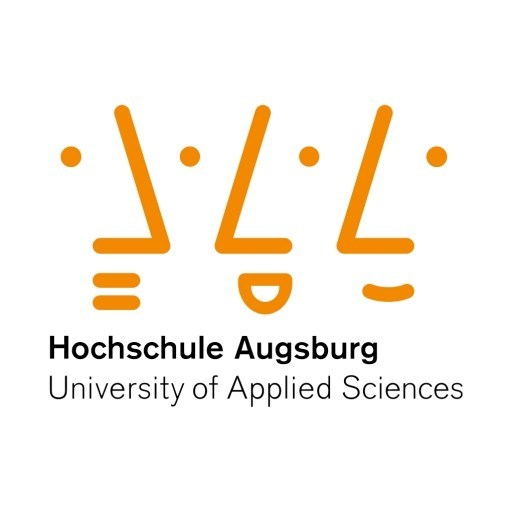Photos of university / #uniessex
The BSc in Accounting and Financial Economics at the University of Essex offers an in-depth exploration of the fundamental principles and practices that underpin the worlds of accounting, finance, and economics. This programme is designed to equip students with a comprehensive understanding of financial systems, economic theories, and accounting techniques, preparing them for a variety of careers in finance, accounting, banking, and economic analysis. Throughout the course, students will develop critical skills in financial reporting, management accounting, quantitative methods, and economic analysis, enabling them to interpret complex financial data and make informed economic decisions. The curriculum combines theoretical knowledge with practical application, ensuring graduates are well-prepared to meet the demands of the dynamic financial sector. Students will engage with a range of modules covering topics such as financial accounting, managerial accounting, microeconomics, macroeconomics, financial markets, and international economics. In addition, there are opportunities to specialise in areas like corporate finance, investment analysis, or financial regulations, depending on students’ interests and career goals. The programme is supported by experienced teaching staff who are active researchers in their fields, offering students access to the latest developments and industry insights. Students will also benefit from practical sessions, group projects, and real-world case studies that enhance learning and develop teamwork skills. The university's strong links with financial institutions and businesses provide students with valuable networking opportunities, placements, and employment prospects after graduation. Graduates of this programme will possess a unique combination of accounting expertise and economic understanding, enabling them to pursue careers in financial analysis, consultancy, risk management, audit, or further studies at postgraduate level. The programme fosters analytical thinking, quantitative literacy, and ethical awareness, ensuring graduates are equipped to contribute responsibly to financial and economic decision-making processes in a global context.
The Bachelor of Science in Accounting and Financial Economics at the University of Essex offers a comprehensive curriculum designed to equip students with a deep understanding of financial markets, economic principles, and accounting practices. The programme combines theoretical knowledge with practical skills, preparing graduates for careers in finance, accounting, auditing, investment banking, and economic analysis. Throughout the course, students explore core areas such as microeconomics, macroeconomics, financial accounting, management accounting, corporate finance, and econometrics. Emphasis is placed on developing analytical and critical thinking abilities, enabling students to interpret financial data, evaluate economic policies, and make informed business decisions.
Students will have opportunities to engage with real-world financial data, participate in simulations, and undertake projects that mirror industry practices. The programme also covers the regulatory environment of financial markets, ethical considerations in accounting, and the role of financial institutions in the economy. The curriculum is structured to foster a thorough understanding of both the quantitative and qualitative aspects of economics and finance, ensuring graduates are well-prepared for dynamic work environments.
Designed with flexibility in mind, the programme offers optional modules allowing students to tailor their studies to specific interests such as investment analysis, international finance, or corporate governance. The University of Essex's strong links with industry ensure that students gain valuable insights through guest lectures, internships, and career development services. equips students with essential skills in financial reporting, economic research, and data analysis tools. Graduates are not only prepared to enter the workforce directly but also have a solid foundation for further postgraduate study in economics, finance, or accounting. With a focus on critical thinking, quantitative analysis, and practical application, the programme aims to produce graduates who are capable of meeting the complex demands of the global financial industry.
Admission to the BSc Accounting and Financial Economics programme at the University of Essex typically requires applicants to have completed secondary education with strong academic performance, particularly in mathematics and economics subjects. Prospective students are expected to demonstrate a good level of numeracy and analytical skills, which are fundamental to the rigorous quantitative content of the programme. International students must meet the university's English language proficiency requirements, such as achieving IELTS scores of at least 6.0 overall, with a minimum of 5.5 in each component, or equivalent qualifications. The programme generally considers applications from students with a variety of educational backgrounds, provided they can show a capacity for quantitative analysis and interpretative skills.
Applicants are often required to submit their academic transcripts, personal statement, and possibly references that attest to their motivation and suitability for the course. Some levels of prior knowledge in economics, mathematics, or related fields can be advantageous. The university values application evidence demonstrating an interest in financial and economic issues, as well as problem-solving abilities and critical thinking skills.
For entry onto undergraduate programmes, the typical offer may include achieving a certain number of UCAS tariff points, which can vary depending on the applicant’s previous qualifications and the international grading system. A typical offer might be around 112 to 128 UCAS points, corresponding to A-level grades in the range of BBC to ABB. Mature students or those with alternative qualifications will be assessed on a case-by-case basis, often considering relevant work experience or prior learning.
The University of Essex promotes inclusive admissions policies and considers individual circumstances during the application process. Additional requirements, such as interviews or entrance tests, are not routinely part of the application process but may be used in specific cases to assess aptitude and motivation.
Applicants should check the specific entry requirements for the academic year they intend to start their studies, as these can be subject to change. Successful candidates will be enrolled in a comprehensive programme designed to develop expertise in accounting practices, financial analysis, economic theory, and quantitative methods, providing a strong foundation for careers in finance, accounting, consultancy, or further academic study.
Funding for the Accounting and Financial Economics program at the University of Essex is available through a variety of sources, including scholarships, grants, and student loans. The university offers several scholarships specifically for undergraduate and postgraduate students, which can help reduce the financial burden. These scholarships are awarded based on academic merit, financial need, or specific criteria related to the program or student background. For example, the Essex Sports Scholarships and the Vice-Chancellor's Bursaries are among the options students can explore. International students may also have access to additional funding opportunities, such as the International Fund and external scholarships from governments and organizations.
In addition to scholarships, students can apply for government student loans, which are available for eligible students depending on their country of residence. In the UK, financial support is available through the Student Loans Company, covering tuition fees and living costs. For overseas students, the university provides guidance on external funding sources, including scholarships from home governments, private organizations, and international agencies.
The university also participates in the Research and Innovation initiatives that can sometimes provide fellowships or grants to postgraduate students engaged in specific research areas within accounting and financial economics. Students are encouraged to explore these options early and consult the university’s financial aid office for personalized guidance.
Part-time work opportunities are also available on campus, allowing students to gain income while studying. The university's career services provide job listings and support for securing part-time employment relevant to students’ fields of study. Additionally, some students may be eligible for employer sponsorships or employer-funded study programs if they are already employed in relevant sectors.
Overall, financing studies at the University of Essex involves a combination of institutional scholarships, government support, external funding, part-time employment, and private sponsorships, designed to support students in successfully completing their accounting and financial economics degrees.
The Accounting and Financial Economics bachelor's degree program at the University of Essex offers students a comprehensive education that combines principles of accounting, finance, and economics. Designed to prepare students for careers in financial analysis, accounting, banking, and economic research, the program provides a solid foundation in the key theories and practical skills required in the financial sector. Students are introduced to core topics such as financial reporting, managerial accounting, macroeconomics, microeconomics, and quantitative methods, ensuring they develop a broad understanding of economic principles alongside specialized accounting knowledge. The curriculum integrates both theoretical coursework and practical applications, including case studies, data analysis, and real-world problem solving, to equip graduates with analytical and decision-making skills valued by employers.
The program encourages critical thinking and the ability to interpret financial data, which are essential for roles in financial management, auditing, consultancy, and investment analysis. Students also have the opportunity to learn about financial markets, investment strategies, and economic policy, providing a well-rounded perspective on how accounting and finance interact within broader economic contexts. The degree typically spans three years, with options for placement years or study abroad, enhancing employability and global awareness.
The faculty at the University of Essex is renowned for research excellence, providing students with up-to-date knowledge and access to experienced professionals from the finance and accounting industries. The university offers modern facilities, including dedicated finance labs and access to industry-standard software, to support experiential learning. With a variety of assessment methods such as coursework, exams, presentations, and group projects, students develop diverse skills necessary for their future careers. Graduates of the program often pursue professional qualifications such as ACCA, CFA, or CIMA, facilitated through university partnerships. Overall, the Accounting and Financial Economics program aims to produce competent, adaptable, and ethically responsible graduates ready to excel in diverse roles across the financial services sector and beyond.










